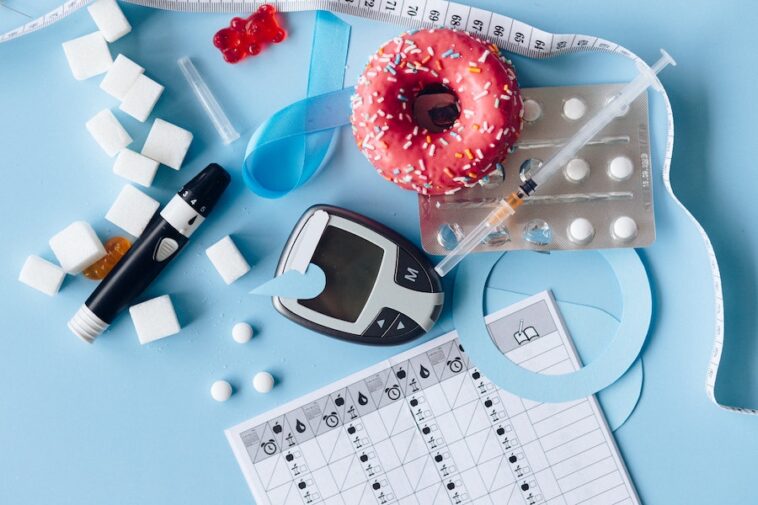The escalating prevalence of diabetes has spurred a growing need for diabetic-friendly dietary choices. One such nutritional powerhouse gaining recognition is the sweet potato. Rich in vitamins, minerals, and fiber, sweet potatoes offer an excellent option for those managing blood sugar levels. In this comprehensive guide, we’ll delve into how to cook sweet potatoes in ways that cater to the needs of individuals with diabetes, maximizing their nutritional benefits while minimizing their impact on blood sugar. Join us as we explore the culinary possibilities that sweet potatoes hold for better diabetic management.
How To Cook Sweet Potatoes For Diabetics?
1. Choose the Right Sweet Potatoes
Select sweet potatoes with a low to moderate glycemic index (GI), such as orange or purple sweet potatoes, as they have a gentler impact on blood sugar compared to high-GI foods.
2. Wash and Prepare
Wash the sweet potatoes thoroughly under running water to remove any dirt. Optionally, peel the sweet potatoes to reduce fiber content, which can slow down digestion and help stabilize blood sugar. However, leaving the skin on provides extra fiber and nutrients.

3. Cut or Dice
Cut or dice the sweet potatoes into your preferred shape and size. Smaller pieces generally cook faster.
4. Choose a Diabetic-Friendly Cooking Method
- Baking: Place sweet potato pieces on a baking sheet, drizzle with a small amount of healthy oil, and bake in a preheated oven at 375°F (190°C) for 30-40 minutes or until they are tender.
- Boiling: Boil sweet potatoes in water until they are fork-tender. Avoid overcooking to prevent a rapid spike in blood sugar.
- Steaming: Steam sweet potatoes until they are soft and easily pierced with a fork.
- Mashing: Boil or steam sweet potatoes and mash them with a small amount of unsweetened almond milk or a sugar substitute for added flavor.
5. Season Mindfully
Enhance the flavor of your sweet potatoes with diabetes-friendly seasonings and toppings: Use herbs and spices like cinnamon, nutmeg, rosemary, or thyme for added taste without added sugars. Avoid using excessive amounts of butter, sugar, or sugary toppings. Instead, consider using a small amount of olive oil or a sugar substitute if necessary.
How Do Sweet Potatoes Affect Blood Sugar Levels?
Sweet potatoes affect blood sugar levels differently than some other high-carbohydrate foods, which makes them a more diabetes-friendly choice. Here’s how sweet potatoes influence blood sugar levels:
- Low Glycemic Index (GI): Sweet potatoes have a relatively low glycemic index (GI), which measures how quickly a carbohydrate-containing food raises blood sugar levels when compared to pure glucose. Foods with a low GI, like sweet potatoes, are digested and absorbed more slowly, resulting in a gradual and steady increase in blood sugar rather than a rapid spike.
- High Fiber Content: Sweet potatoes are a good source of dietary fiber, particularly when consumed with the skin. Fiber helps slow down the digestion and absorption of carbohydrates, which can further contribute to stable blood sugar levels. It also promotes a feeling of fullness, preventing overeating and potential blood sugar spikes.
- Complex Carbohydrates: The majority of the carbohydrates in sweet potatoes come from complex carbohydrates, mainly starch. These complex carbohydrates are broken down more slowly in the digestive system, leading to a gradual release of glucose into the bloodstream.
- Nutrient Content: Sweet potatoes are packed with essential vitamins and minerals, including vitamin A, vitamin C, potassium, and manganese. These nutrients can have a positive impact on overall health and may contribute to better blood sugar management.
- Individual Variability: It’s important to note that the glycemic response to sweet potatoes can vary from person to person. Factors such as cooking methods, portion sizes, and the presence of other foods in a meal can influence how sweet potatoes affect blood sugar levels in an individual.
Tips For Incorporating Sweet Potatoes Into A Diabetic Diet
Incorporating sweet potatoes into a diabetic diet can be a flavorful and nutritious choice when done mindfully. Here are some tips to help you enjoy sweet potatoes while managing your blood sugar levels effectively:
- Portion Control: Be mindful of portion sizes. While sweet potatoes are a healthy choice, consuming large quantities can still impact blood sugar. Stick to recommended serving sizes, typically around 1/2 to 1 cup of cooked sweet potatoes.
- Balanced Meals: Incorporate sweet potatoes into well-balanced meals that include lean proteins, non-starchy vegetables, and healthy fats. This combination can help stabilize blood sugar levels.
- Cooking Methods: Choose cooking methods that have a lower impact on blood sugar, such as baking, steaming, or boiling. Avoid frying or using excessive amounts of oil.
- Include Fiber: Leave the skin on when cooking sweet potatoes or opt for varieties with purple or orange flesh, as they have more fiber. Fiber helps slow down the digestion of carbohydrates and can prevent rapid spikes in blood sugar.
- Limit Sugary Additions: Avoid adding sugar, honey, or syrups to sweet potatoes. Instead, flavor them with diabetes-friendly seasonings like cinnamon, nutmeg, or a small amount of a sugar substitute if necessary.
- Pair with Protein: Combine sweet potatoes with a source of lean protein, such as grilled chicken, turkey, tofu, or legumes like black beans or lentils. Protein can help further stabilize blood sugar levels.
- Healthy Fats: Consider adding a small amount of healthy fats, like olive oil or avocado, to your sweet potatoes. These fats can enhance flavor and slow down the digestion of carbohydrates.
- Meal Planning: Include sweet potatoes in your meal planning. For example, use them in place of regular potatoes in recipes like sweet potato fries or mashed sweet potatoes.
- Snack Smartly: If you enjoy sweet potato snacks, portion them appropriately and pair them with protein-rich options like Greek yogurt or cottage cheese to balance out the carbohydrates.
- Regular Monitoring: Keep track of your blood sugar levels and observe how sweet potatoes affect you personally. This will help you make informed choices and adjust your diet as needed.
Potential Risks And Precautions
When incorporating sweet potatoes into a diabetic diet, it’s essential to be aware of potential risks and take necessary precautions to ensure they are consumed in a way that supports blood sugar management. Here are some potential risks and precautions:
Allergic Reactions:
Some individuals may have allergies to sweet potatoes. If you experience symptoms like itching, swelling, or difficulty breathing after consuming sweet potatoes, seek immediate medical attention.
Overconsumption:
Although sweet potatoes are a healthy choice, overeating them can still lead to an increase in blood sugar levels. Be mindful of portion sizes and incorporate sweet potatoes into a balanced diet.
Interaction with Medications:
If you are taking medication to manage your blood sugar, be aware that sweet potatoes can affect how these medications work. Monitor your blood sugar levels closely and consult with your healthcare provider to adjust medication if necessary.
Glycemic Response Variability:
The glycemic response to sweet potatoes can vary from person to person. Factors like cooking methods, portion sizes, and individual sensitivity to carbohydrates can influence how sweet potatoes affect blood sugar levels.
Preparation Methods:
The way sweet potatoes are prepared can impact their glycemic index. For example, frying sweet potatoes or adding sugary toppings can increase their glycemic load. Choose healthier cooking methods and avoid adding sugar or high-fat toppings.
Consult with a Healthcare Professional:
It’s crucial to consult with a healthcare professional or registered dietitian who specializes in diabetes management. They can provide personalized guidance on incorporating sweet potatoes into your diet, monitor your progress, and make adjustments as needed.
Monitor Blood Sugar Levels:
Regularly monitor your blood sugar levels, especially when you introduce sweet potatoes into your diet or make changes to your meal plan. This will help you understand how your body responds to them and make informed decisions.
Conclusion
In conclusion, sweet potatoes can be a valuable addition to a diabetic diet when consumed thoughtfully. Their low glycemic index, high fiber content, and nutrient richness make them a favorable choice for blood sugar management. By practicing portion control, choosing healthy cooking methods, and avoiding sugary additions, individuals with diabetes can enjoy the nutritional benefits of sweet potatoes. However, it’s crucial to monitor blood sugar levels, consult with healthcare professionals, and maintain a well-rounded, balanced diet to effectively incorporate sweet potatoes into a diabetes management plan while safeguarding overall health.
FAQs
Are Sweet Potatoes Safe For Diabetics To Eat?
Yes, sweet potatoes can be part of a diabetic diet when consumed in moderation and prepared mindfully.
What Is The Glycemic Index Of Sweet Potatoes?
The glycemic index of sweet potatoes varies, but it’s generally considered low to moderate, making them a better choice for blood sugar management compared to high-GI foods.
Can I Eat Sweet Potatoes If I’m Trying To Lose Weight With Diabetes?
Yes, sweet potatoes can be part of a weight-conscious diabetic diet due to their fiber content, which can promote a feeling of fullness.
What’s The Best Cooking Method For Sweet Potatoes For Diabetics?
Baking, steaming, or boiling sweet potatoes are diabetic-friendly cooking methods that minimize blood sugar spikes.
Should I Consult My Doctor Before Including Sweet Potatoes In My Diet If I Have Diabetes?
It’s advisable to consult with a healthcare professional or registered dietitian to ensure that sweet potatoes fit well into your diabetes management plan and to address any specific dietary concerns.





